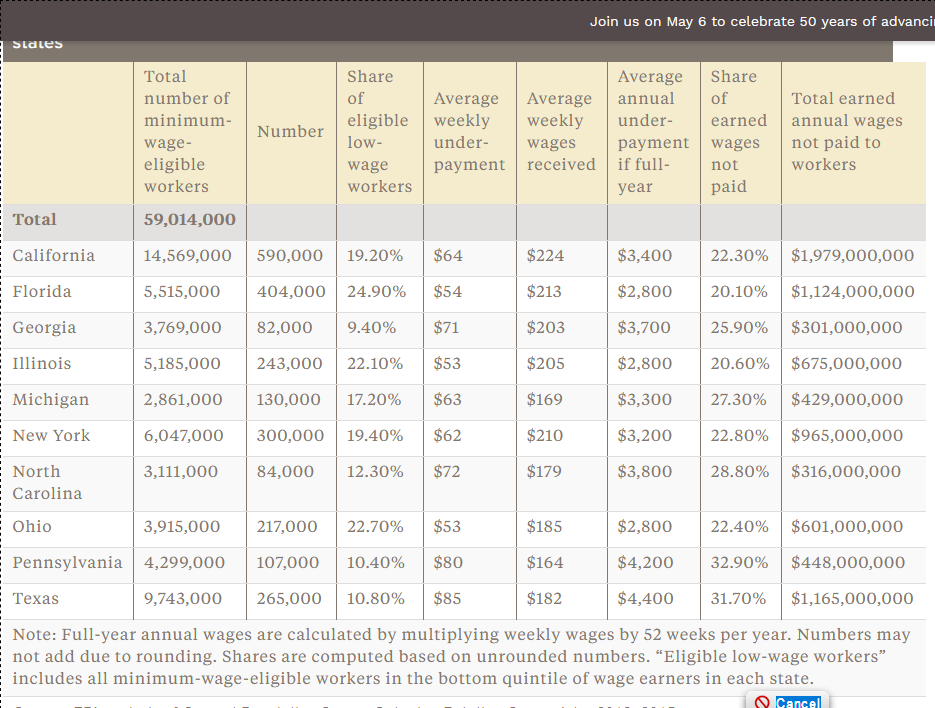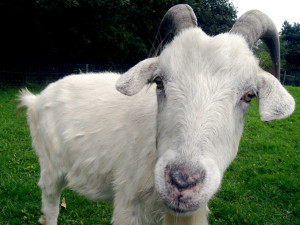Capitalism is thievery, even by its own laws, but some lowlife bosses are not satisfied with the ill-gotten gains and unfair advantages that the law already provides. No, some bosses not only exploit their workers, filling their baskets with the majority of the fruit that a worker produces, they also coerce or trick workers into working hours for free or accepting less than the already woefully inadequate minimum wage.

This wage thievery hurts “honest” and “hard working” small business owners as well, by giving an unfair advantage to the lowlife pick pockets who take money from their workers’ paychecks. The thieves can lower their “operating expenses” and undercut their honest competitors. So “honest” bosses are getting screwed too while lowlife bosses can thrive.

Any business which doesn’t a pay living wage has no right to exist. They are a detriment to society.
But bosses who run businesses and steal from their workers already meager earnings are criminals and should be put in jail. And I don’t mean Club Fed type country clubs. Lets’ take a page Lisbeth Salander and tattoo “this asshole steals wages from poor workers” across their chest and back and maybe on their foreheads too. Wage stealing bosses live in the same hole as pedaphiles, along with scabs and Pinkertons and Eric Prince.
There is no doubt that all wage labor is wage slavery under the menace of capitalism, but since we still have a fair amount of work to do before we are ready to challenge the rulers for control of society, bills like NJ Senate bill S1790 and Assembly bill A2903 are a baby step and offer workers some cheesecloth like armor of protection. We reiterate the best way to fight for workers’ rights is to organize in the workplace and at the point of production. Building egalitarian structures in an IWW rank and file union is the real hope for change. But if this proposed wage theft law in NJ can relieve some of the suffering of so many mostly low wage workers than we support it and call on the legislature to pass it immediately.
Wage theft, in the US, is a huge criminal enterprise. The Economic Policy Institute estimates that the wage theft that revolves around the minimum wage alone is $15 billion a year. That’s more than “shoplifting” and if bosses paid a living wage “shoplifting” would most likely be even less of a problem.
,All threads connect in the fabric of capitalist oppression, and when we pull one, wage theft, we find that it is tied to another, low wages. Laws that regulate the level of theft tolerated are not a bad thing, but we need to rid ourselves of exploitative social relations entirely. All we need is the strategy and the movement to start to make it happen.



